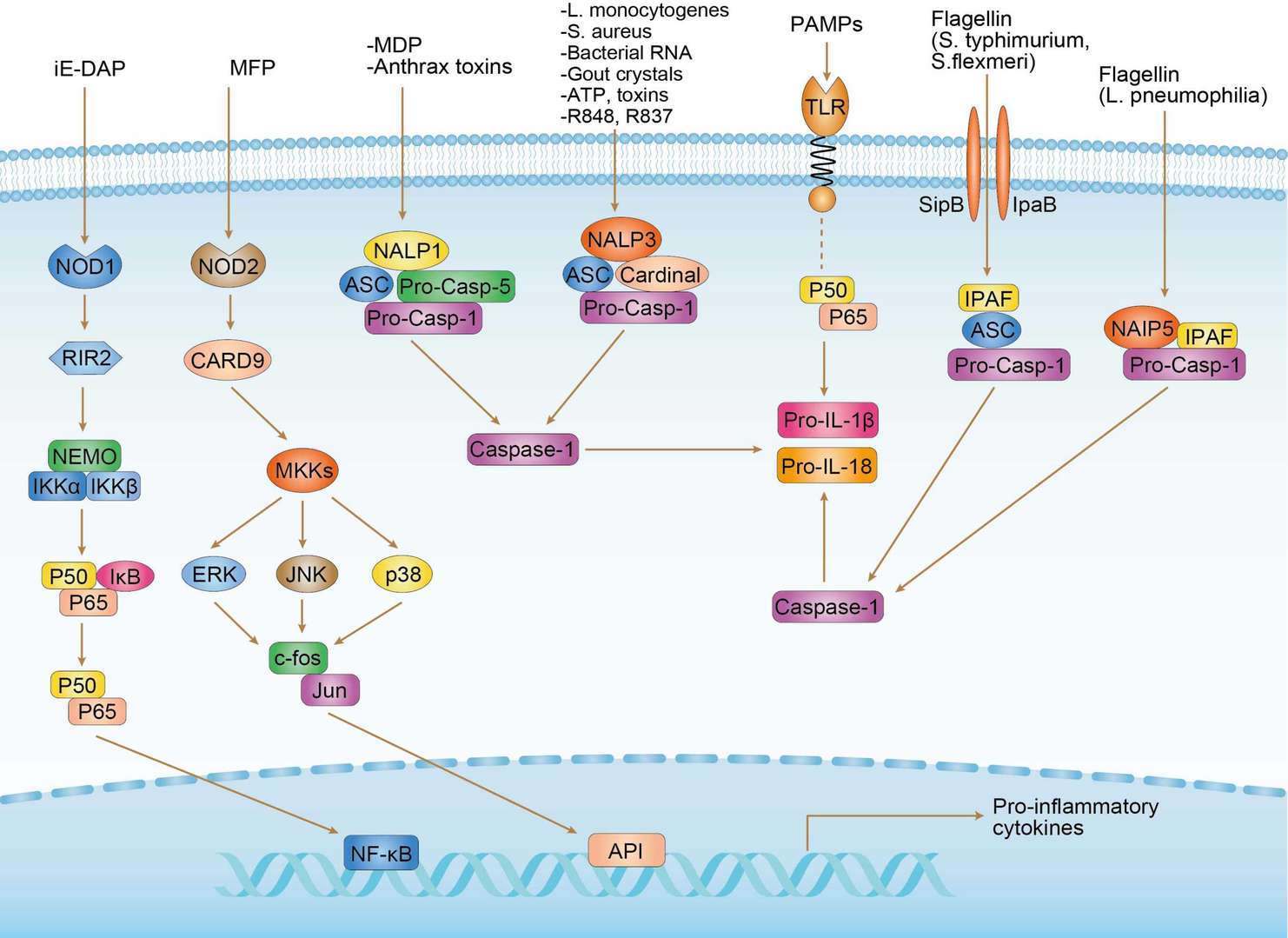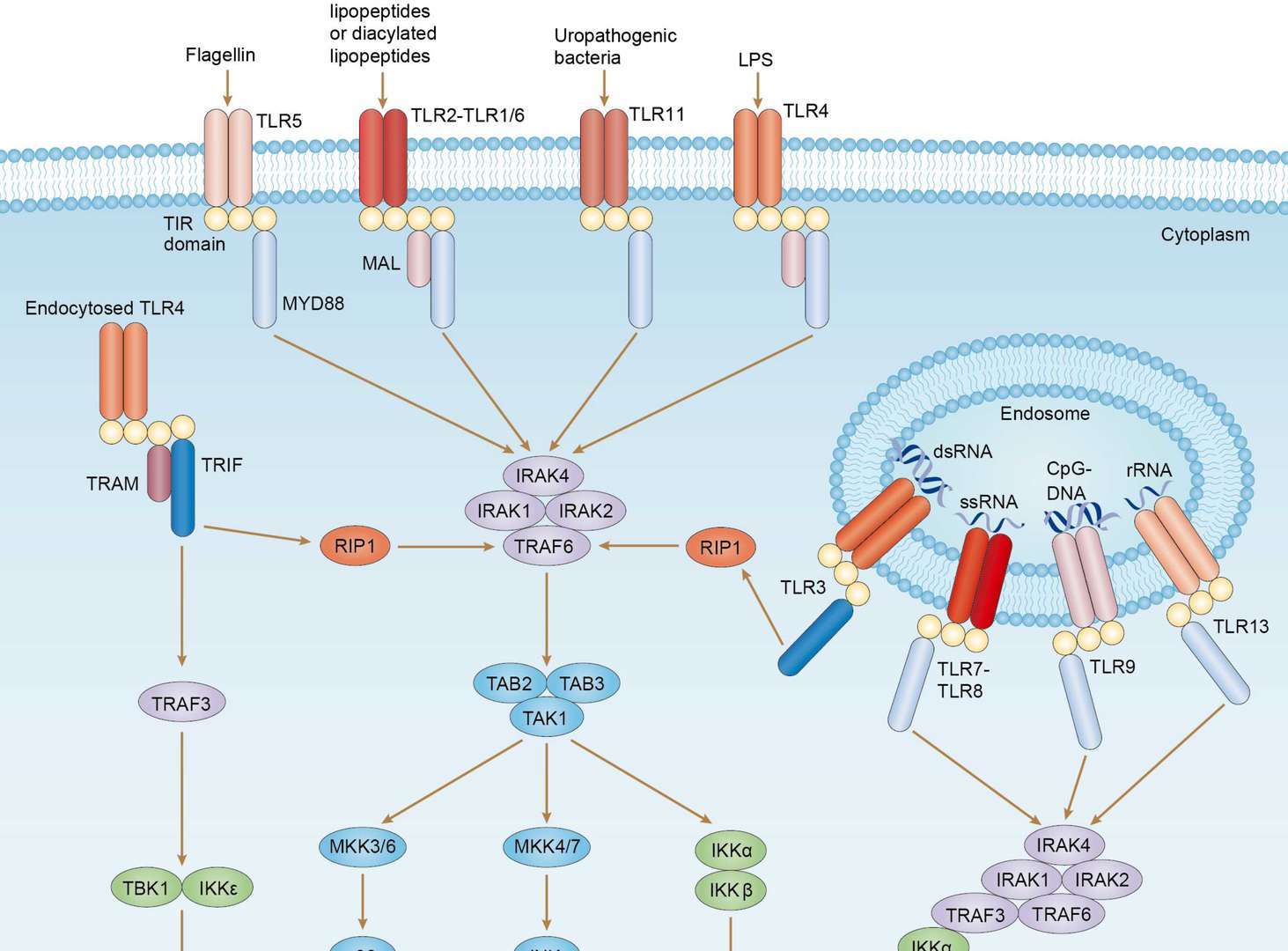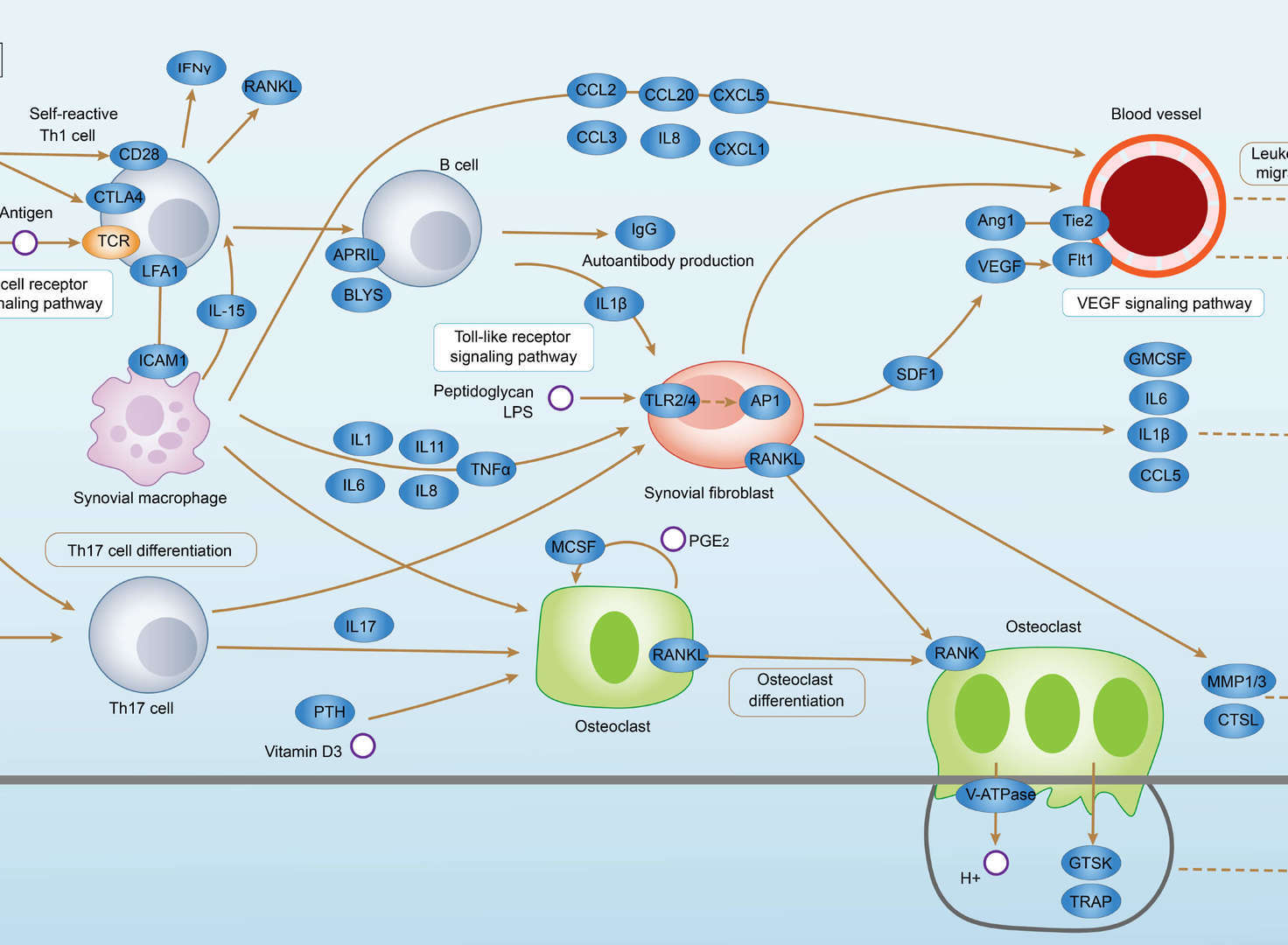+ Filter
 Loading...
Loading...

TLR4
 Loading...
Loading...Anti-TLR4 Products
- Human Anti-TLR4 Recombinant Antibody (TAB-613CL) (TAB-613CL)
-
- Derivation: Humanized
- Species Reactivity: Human
- Type: Human IgG
- Application: FuncS
-
- Derivation: Humanized
- Species Reactivity: Human
- Type: ADCC enhanced antibody
-
- Species Reactivity: Human
- Type: Human IgG
- Application: Neut
- Rat Anti-TLR4 Antibody, mRNA (HPAB-0318CQ-mRNA) (HPAB-0318CQ-mRNA)
-
- Species Reactivity: Mouse
- Rat Anti-TLR4 Recombinant Antibody (clone MTS510) (MOR-0002-FY)
-
- Species Reactivity: Mouse
- Type: Rat IgG2a
- Application: FC, FuncS, IF, IP
- AbPlus™ Anti-TLR4 Magnetic Beads (HTA125) (VS-0424-XY255)
-
- Target: TLR4
- Target Species: Human
- Application: IP, Protein Purification
- Mouse Anti-TLR4 Recombinant Antibody (NEUT-2040CQ) (NEUT-2040CQ)
-
- Species Reactivity: Human
- Type: Mouse IgG1
- Application: Neut
- Mouse Anti-TLR4 Recombinant Antibody (clone 7E3) (NEUT-2041CQ)
-
- Species Reactivity: Human
- Type: Mouse IgG1
- Application: Neut, FC
-
- Species Reactivity: Human
- Application: ELISA, WB
-
- Species Reactivity: Human
- Type: Human IgG
- Application: WB, ELISA, FuncS
- Human Anti-TLR4 Recombinant Antibody; scFv Fragment (PABX-181-S (P)) (PABX-181-S (P))
-
- Species Reactivity: Human
- Type: Human scFv
- Application: WB, ELISA, FuncS
- Human Anti-TLR4 Recombinant Antibody; Fab Fragment (PABX-181-F (E)) (PABX-181-F (E))
-
- Species Reactivity: Human
- Type: Human Fab
- Application: WB, ELISA, FuncS
- Recombinant Rat Anti-Tlr4 Antibody (MTS510) (NEUT-2036CQ)
-
- Species Reactivity: Mouse
- Type: IgG2a, κ
- Application: FC, IHC, ICFC, IF, IP, BL
- Mouse Anti-TLR4 Recombinant Antibody (clone 3C3) (NEUT-2037CQ)
-
- Species Reactivity: Human
- Type: Mouse IgG1
- Application: Neut, FC
- Mouse Anti-TLR4 Recombinant Antibody (clone CBL961) (NEUT-2038CQ)
-
- Species Reactivity: Human, Canine, Mouse
- Type: Mouse IgG2a, κ
- Application: FC, ICC, IF, IP, Neut
- Mouse Anti-TLR4 Recombinant Antibody (clone HTA125) (NEUT-2039CQ)
-
- Species Reactivity: Human
- Type: Mouse IgG2a
- Application: ICC, IP, FC, Neut
- Rat Anti-Tlr4 Recombinant Antibody (HPAB-0318CQ) (HPAB-0318CQ)
-
- Species Reactivity: Mouse
- Type: Rat IgG2a, κ
- Application: FC, IP, Apop, IHC, WB, Inhib, FuncS
- Rabbit Anti-TLR4 Polyclonal Antibody (MRO-2226-CN) (MRO-2226-CN)
-
- Species Reactivity: Human, Mouse, Rat
- Type: Rabbit IgG
- Application: IF, IHC, FC, WB
- Human Anti-TLR4 Recombinant Antibody (HPAB-AP199-YC) (HPAB-AP199-YC)
-
- Species Reactivity: Human, Cynomolgus
- Type: Human IgG
- Application: FC, ELISA, Inhib
- Human Anti-TLR4 Recombinant Antibody (HPAB-AP200-YC) (HPAB-AP200-YC)
-
- Species Reactivity: Human, Cynomolgus
- Type: Human IgG
- Application: FC, ELISA, Inhib
- Human Anti-TLR4 Recombinant Antibody (HPAB-AP201-YC) (HPAB-AP201-YC)
-
- Species Reactivity: Cynomolgus
- Type: Human IgG
- Application: ELISA, FC, Inhib
- Human Anti-TLR4 Recombinant Antibody (HPAB-AP202-YC) (HPAB-AP202-YC)
-
- Species Reactivity: Cynomolgus
- Type: Human IgG
- Application: ELISA, FC
-
- Species Reactivity: Human
- Type: Mouse IgG1
- Application: FC, FuncS
- Human Anti-TLR4 Recombinant Antibody (clone CBT111YJ) (HPAB-0678YY)
-
- Species Reactivity: Human
- Type: Human IgG1, λ
- Application: ELISA, Inhib
-
- Derivation: Mouse
- Species Reactivity: Human
- Type: Mouse IgG1
- Application: ICC, IF, FuncS
- Rat Anti-TLR4 Recombinant Antibody (clone 52-1H4 e2) (HPAB-A1210-YJ)
-
- Species Reactivity: Rat
- Type: Rat IgG1
- Application: ELISA, Neut
- Human Anti-TLR4 Recombinant Antibody (clone CBT111YJ); Fab Fragment (HPAB-0678YY-F(E))
-
- Species Reactivity: Human
- Type: Human Fab
- Application: ELISA, Inhib
- Human Anti-TLR4 Recombinant Antibody; scFv Fragment (HPAB-AP199-YC-S(P)) (HPAB-AP199-YC-S(P))
-
- Species Reactivity: Human, Cynomolgus
- Type: Human scFv
- Application: ELISA, FC, Inhib
- Human Anti-TLR4 Recombinant Antibody; Fab Fragment (HPAB-AP199-YC-F(E)) (HPAB-AP199-YC-F(E))
-
- Species Reactivity: Human, Cynomolgus
- Type: Human Fab
- Application: ELISA, FC, Inhib
- Human Anti-TLR4 Recombinant Antibody; Fab Fragment (HPAB-AP200-YC-F(E)) (HPAB-AP200-YC-F(E))
-
- Species Reactivity: Human, Cynomolgus
- Type: Human Fab
- Application: ELISA, FC, Inhib
- Human Anti-TLR4 Recombinant Antibody; Fab Fragment (HPAB-AP201-YC-F(E)) (HPAB-AP201-YC-F(E))
-
- Species Reactivity: Cynomolgus
- Type: Human Fab
- Application: ELISA, FC, Inhib
- Rat Anti-Tlr4 Recombinant Antibody Fab Fragment (HPAB-0318CQ-F(E)) (HPAB-0318CQ-F(E))
-
- Species Reactivity: Mouse
- Type: Rat Fab
- Application: FC, IP, Apop
- Human Anti-TLR4 Recombinant Antibody; Fab Fragment (HPAB-AP202-YC-F(E)) (HPAB-AP202-YC-F(E))
-
- Species Reactivity: Cynomolgus
- Type: Human Fab
- Application: ELISA, FC
- Human Anti-TLR4 Recombinant Antibody (clone CBT111YJ); scFv Fragment (HPAB-0678YY-S(P))
-
- Species Reactivity: Human
- Type: Human scFv
- Application: ELISA, Inhib
- Human Anti-TLR4 Recombinant Antibody; scFv Fragment (HPAB-AP200-YC-S(P)) (HPAB-AP200-YC-S(P))
-
- Species Reactivity: Human, Cynomolgus
- Type: Human scFv
- Application: ELISA, FC, Inhib
- Human Anti-TLR4 Recombinant Antibody; scFv Fragment (HPAB-AP201-YC-S(P)) (HPAB-AP201-YC-S(P))
-
- Species Reactivity: Cynomolgus
- Type: Human scFv
- Application: ELISA, FC, Inhib
- Human Anti-TLR4 Recombinant Antibody; scFv Fragment (HPAB-AP202-YC-S(P)) (HPAB-AP202-YC-S(P))
-
- Species Reactivity: Cynomolgus
- Type: Human scFv
- Application: ELISA, FC
- Mouse Anti-NHP TLR4 Recombinant Antibody (clone HTA125) (VS-1024-XY505)
-
- Species Reactivity: Dog, Cat, Guinea pig, Human, Mouse, Non-human primate, Pig, Rhesus monkey
- Type: Mouse IgG2a
- Application: FC
-
- Species Reactivity: Human
- Type: Human Fab
- Application: Neut
-
- Species Reactivity: Human
- Type: Human scFv
- Application: Neut
- Human Anti-TLR4 scFv-Fc Chimera (VS-0425-FY30) (VS-0425-FY30)
-
- Species Reactivity: Human
- Type: Human IgG1, scFv-Fc
- Application: FC, ELISA, Neut
- Anti-TLR4 Immunohistochemistry Kit (VS-0525-XY7306)
-
- Species Reactivity: Human
- Target: TLR4
- Application: IHC
- Anti-Mouse TLR4 Immunohistochemistry Kit (VS-0525-XY7307)
-
- Species Reactivity: Human, Mouse, Rat, Porcine, Bovine, Monkey
- Target: TLR4
- Application: IHC
-
- Species Reactivity: Human
- Type: Rabbit IgG
- Application: WB, FC
-
- Species Reactivity: Rat
- Target: TLR4
- Host Animal: Rat
- Application: ELISA, FC, Neut, Cell-uptake
View More Products
Can't find the products you're looking for? Try to filter in the left sidebar.Filter By Tag
More Infomation
Our customer service representatives are available 24 hours a day, from Monday to Sunday. Contact Us
For Research Use Only. Not For Clinical Use.
Background
The protein encoded by this gene is a member of the Toll-like receptor (TLR) family which plays a fundamental role in pathogen recognition and activation of innate immunity. TLRs are highly conserved from Drosophila to humans and share structural and functional similarities. They recognize pathogen-associated molecular patterns that are expressed on infectious agents, and mediate the production of cytokines necessary for the development of effective immunity. The various TLRs exhibit different patterns of expression. This receptor has been implicated in signal transduction events induced by lipopolysaccharide (LPS) found in most gram-negative bacteria. Mutations in this gene have been associated with differences in LPS responsiveness. Multiple transcript variants encoding different isoforms have been found for this gene.


 NLR Signaling Pathway
NLR Signaling Pathway
 TLR Signaling Pathway
TLR Signaling Pathway
 Rheumatoid Arthritis
Rheumatoid Arthritis

